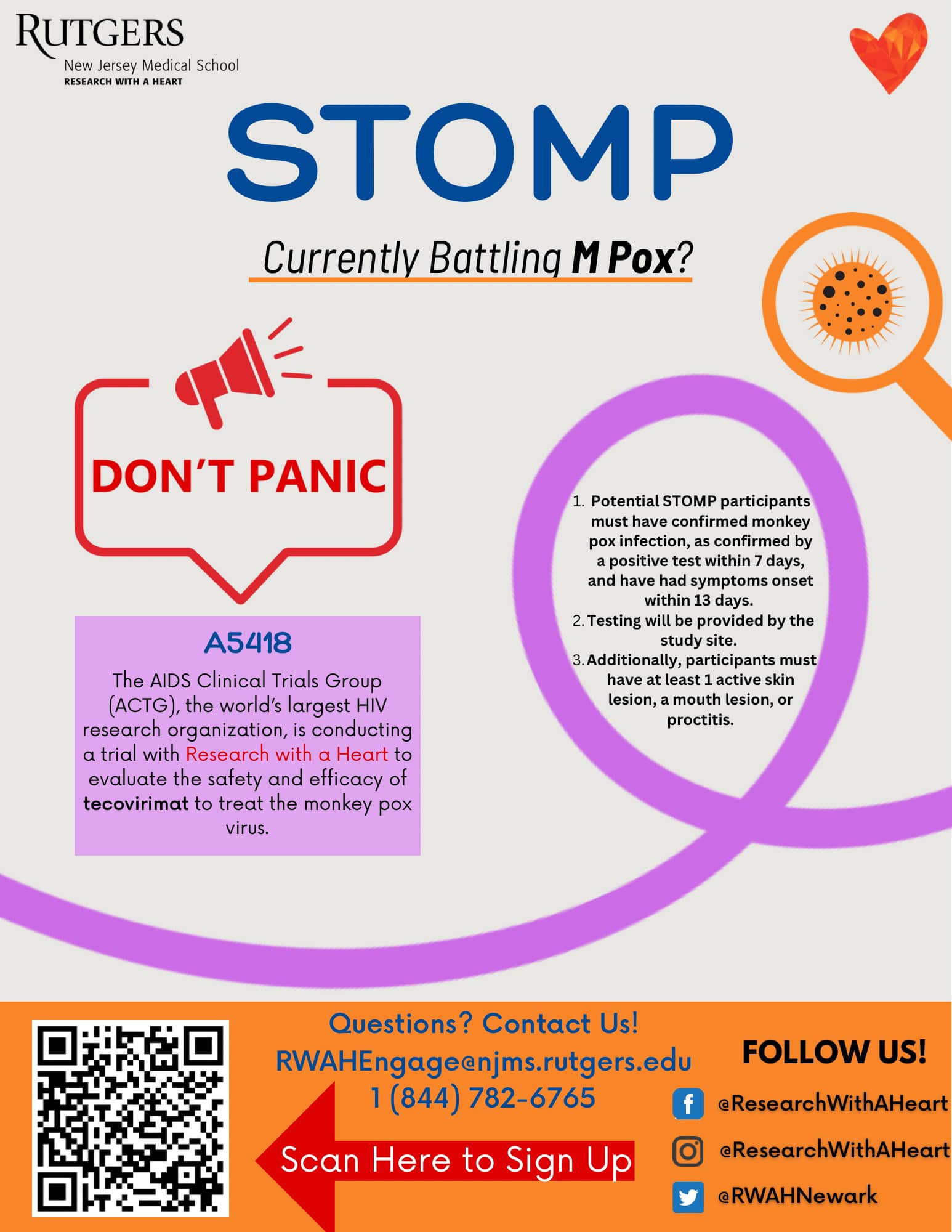A5418 Clinical Trial (STOMP)
About:
The National Institute of Allergy and Infectious Diseases (NIAID), part of the National Institutes of Health, is sponsoring a Phase 3 clinical trial evaluating the antiviral tecovirimat, also known as TPOXX, for the treatment of Mpox. The NIAID-funded ACTG is leading the study, which is now enrolling adults and children with Mpox infection in the United States and select sites internationally. Study investigators aim to enroll more than 500 people from up to 80 clinical research sites.
Adults with severe Mpox, severe immunodeficiency, or severe inflammatory skin conditions; individuals taking certain medications that could affect tecovirimat levels; and pregnant people, people who are breastfeeding and children all will be enrolled in an open-label arm in which all participants receive tecovirimat. Other adult participants—530 total—will be randomly assigned in a 2:1 ratio to receive tecovirimat or placebo pills, which participants will take for 14 days. This part of the trial is double-blind, meaning neither participants nor investigators will know who is receiving placebo or tecovirimat.
Contact:
📧 RWAHEngage@njms.rutgers.edu
📞 1 (844) 782-6765
